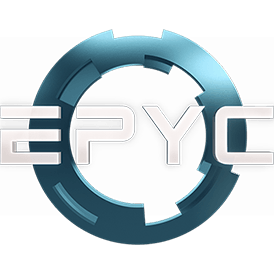
This section provides a comprehensive overview of the processors generation and family, explaining the specific market segment it is designed for. It covers key details such as the CPUs position within its product lineup, its intended use cases (e.g., consumer, server, or workstation), and how its generation compares to previous models.
AMD Epyc 7702. This section highlights key performance parameters of the processor, including the number of cores, threads, and clock speeds (base and boost frequencies). These metrics directly impact multitasking capabilities and overall system performance in both single-threaded and multi-threaded applications.
This section provides details on the integrated graphics capabilities of the processor. It covers the architecture, performance characteristics, and supported technologies (e.g., DirectX, OpenGL), which are essential for systems without dedicated GPUs or for mobile devices that require energy-efficient graphics processing.
This section covers the built-in hardware codec support for video and image processing. The processor’s ability to handle codecs like H.264, HEVC, and VP9 directly influences its performance in tasks such as video playback, editing, and streaming. This hardware acceleration ensures smoother media handling with lower CPU utilization.
This section breaks down the technical characteristics of the memory supported by the processor, including the types (e.g., DDR4, DDR5), number of memory channels, and maximum supported memory speed. It also covers PCI Express support, which determines the bandwidth available for GPUs, SSDs, and other peripherals, critical for high-performance systems.
This section focuses on the hardware-based security technologies integrated into the processor. These include encryption support features such as AES-NI, Intel SGX, and AMD Secure Memory Encryption, which provide robust protection for sensitive data and help mitigate cybersecurity risks.
This section explains the underlying technologies that enable the processor to deliver high performance. It includes details about the manufacturing process (e.g., 7nm, 10nm), supported instruction sets (e.g., AVX, SSE), and virtual machine extensions that enhance compatibility and efficiency across various workloads.
Gemeinsame Standpunkte AMD Epyc 7702 CPU in gängigen Benchmarks, zum Vergleich mit anderen Modellen.
Compare the benchmark scores of AMD Epyc 7702 with other processors to gauge its real-world performance across various tasks..
These tests encompass tasks such as mathematical calculations, 3D rendering, cryptocurrency mining, and performance evaluations in both single-core and multi-core modes.
Ähnlich bei technischen Datenverarbeitern mit AMD Epyc 7702.
*
PL1 - The power limit (in watts) generated by the processor (or GPU) during sustained, standard operation. It represents the typical thermal output during normal workloads.
PL2 - Represents the maximum power limit under heavy load or overclocking conditions. It indicates the thermal output during peak performance.
These values are essential for determining the optimal cooling system and power supply required to maintain stable performance.